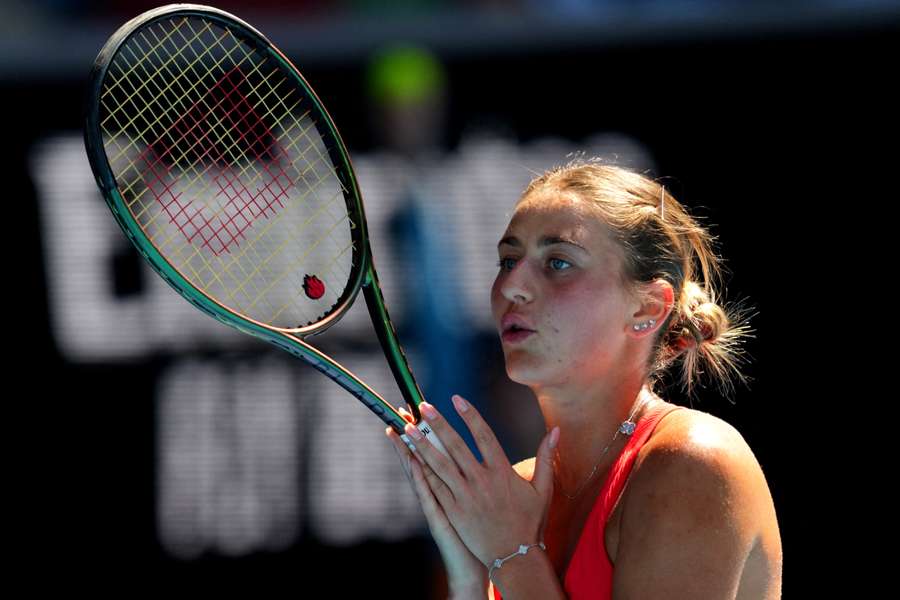Bach wrong on Russian participation, says Ukrainian tennis player Kostyuk

Bach used the example of Kostyuk's victory at the WTA tournament in Austin, Texas over Russia's Varvara Gracheva (22) in the final earlier this month, to reinforce his point on Tuesday that Russians already compete in some sports without problems.
"My game was mentioned by Bach (on Tuesday)," Kostyuk said in a conference call with Olympic champions and other international athletes who oppose the readmission of Russia and Belarus.
"We have a ranking system in our sport. If I don't participate I will lose my ranking and my career will be over," added Kostyuk, ranked 38 in the world.
She snubbed her opponent after her win, refusing to shake the Russian's hand in a move that made global headlines.
"A lot has been said and I wanted to say from myself, we have not been doing it publicly, but for the last year we have been fighting to exclude Russians and Belarusians from our sport," she said.
"Unfortunately we are not independent players. We are working for WTA and ATP organisations (tour organisers) and we do not have a lot of power to make changes."
Fellow Ukrainian tennis player Lesia Tsurenko (33) said every match against Russians or Belarusians was an ordeal.
"It is an ethical conflict every time we play against them," Tsurenko said. "It affected me so that I had kind of panic attacks."
Athletes from Russia and Belarus, Moscow's ally, were banned from most international competitions last year following Russia's invasion of Ukraine.
Yet the Lausanne-based IOC has issued guidelines to allow for their return to world sport.
The IOC cited human rights concerns for Russian athletes and the current participation of Russians and Belarusians in some sports as reasons for the decision.
They will do so as neutral athletes, without a flag, emblem or anthem.
WRONG DECISION
"What Bach told us was wrong," said Czech Olympic champion Dominik Hasek (58), an ice hockey gold medallist in 1998, who also won bronze in 2006 and played in the NHL for many years.
"It was expected, what we heard from Bach," he said. "It will be a long war but we will win. We need to be vocal and we need to be supportive to each other."
The guidelines have angered not only those in favour of a continued blanket ban of Russian and Belarusian athletes. Russia is also unhappy, saying any move to deprive athletes of their national symbols is discriminatory.
"For all of us it is a mess," said German fencer Lea Krueger (27).
"How can they (Russians and Belarusians) come back. We don't know if Olympic qualification will work, what about doping?," she said.
"How can a Ukrainian compete against a Russian athlete. Don't forget we have weapons in our hands."
